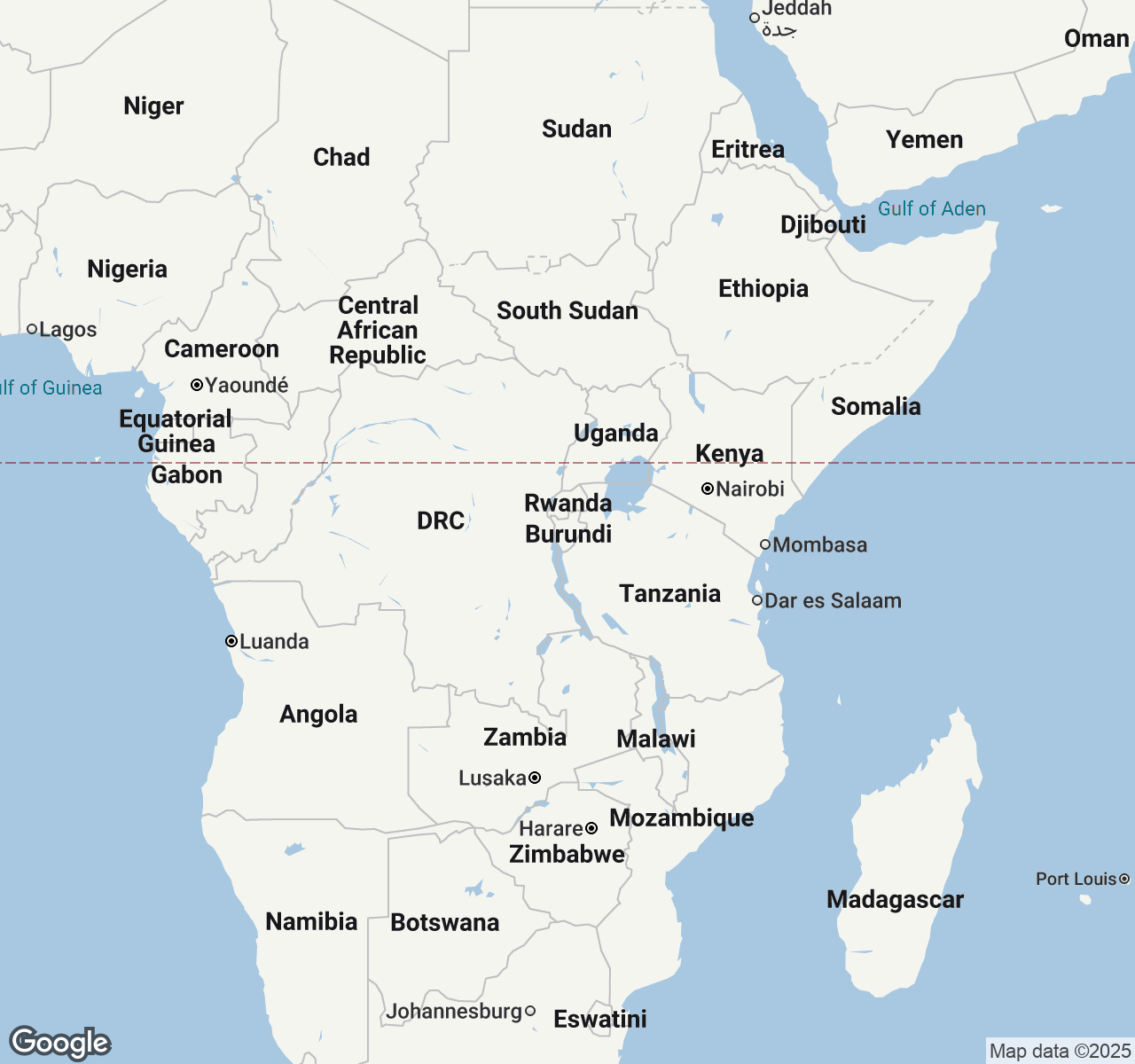
Things to Do in Burundi
Discover the best of Burundi
Plan Your Trip
Essential guides for timing and budgeting
Top Things to Do in Burundi
Discover the best activities and experiences. Book now with our trusted partners and enjoy hassle-free adventures.
Explore Burundi
Bujumbura
City
Gitega
City
Karera Falls
City
Kayanza
City
Bururi
Town
Ngozi
Town
Rumonge
Town
Gishora Drum Sanctuary
Region
Karera Waterfalls
Region
Kibira National Park
Region
Lake Tanganyika
Region
Livingstone Stanley Monument
Region
Rusizi National Park
Region
Ruvubu National Park
Region
Source Of The Nile
Region
Saga Beach
Beach
Your Guide to Burundi
About Burundi
Burundi is smaller than Maryland but packs more heart per square mile than anywhere you'll visit in East Africa. The hills rise sharply from Lake Tanganyika's shores, terraced with coffee plants that grow under relentless equatorial sun. Every valley has a village. Every summit offers views that run for miles in all directions—Rwanda to the north, Tanzania wrapping around the east and south, Congo just across the water. Traditional drums still matter here. You'll hear them echoing across mountainsides where farmers tend their plots and kids chase each other between banana groves. The hospitality is real, not performed for tourists. Spend an afternoon with locals and you won't leave as a stranger. Bujumbura mixes colonial buildings with loud, packed markets. The grilled tilapia smells better than it has any right to. Kids play in the streets. Time runs slower here—conversations stretch over bottles of banana beer, and meals turn into hours-long gatherings without anyone checking their phone. Small country, enormous spirit.
Travel Tips
Transportation: Book domestic flights are limited—most travel is by road. Use buses between major towns for 3,000-8,000 Burundian francs ($1.68-$4.48) but expect long journey times on poor roads. In cities, motorcycle taxis cost 500-2,000 francs ($0.28-$1.12) for short distances.
Money: US dollars get better exchange rates than euros—1 USD gets around 1,785 Burundian francs at banks. ATMs are scarce outside Bujumbura; bring sufficient cash. Budget 15,000-30,000 francs ($8.40-$16.80) daily for accommodation, meals, and transport.
Cultural Respect: Learn basic Kirundi greetings: 'bite' (good morning) and 'murakoze' (thank you). Respect traditional drumming culture by attending performances respectfully. Dress modestly, particularly when visiting rural areas.
Food: Try isombe (cassava leaves with groundnuts) and ugali at local restaurants for 3,000-6,000 francs ($1.68-$3.36) per meal. Sample banana beer (urwarwa) for 1,000-2,000 francs ($0.56-$1.12) per bottle. Avoid tap water; bottled water costs 1,500-2,500 francs ($0.84-$1.40).
When to Visit
Burundi's equatorial highland climate creates two distinct seasons that dramatically affect travel experiences. The dry season (June-September and December-February) offers the best conditions, with temperatures ranging from 23-27°C (73-81°F) and minimal rainfall under 50mm monthly. This period sees 40-60% higher accommodation prices but provides ideal hiking conditions and clearer lake views. The long rainy season (March-May) brings heavy downpours averaging 150-200mm monthly, while the short rains (October-November) are lighter at 100mm. Temperatures during wet seasons hover around 20-24°C (68-75°F) with high humidity. Budget travelers benefit from 30-50% lower prices during rainy periods, though some rural roads become impassable. Independence Day (July 1st) and New Year feature lively celebrations but book early. The Umuganura harvest festival (August) showcases traditional culture with drum performances and local cuisine. Birdwatchers should visit March-May when migratory species arrive. For coffee ensoiasts, March-July harvest season offers plantation tours. Adventure travelers can handle any season, while luxury seekers should stick to June-September for optimal weather and accessibility.

Burundi location map